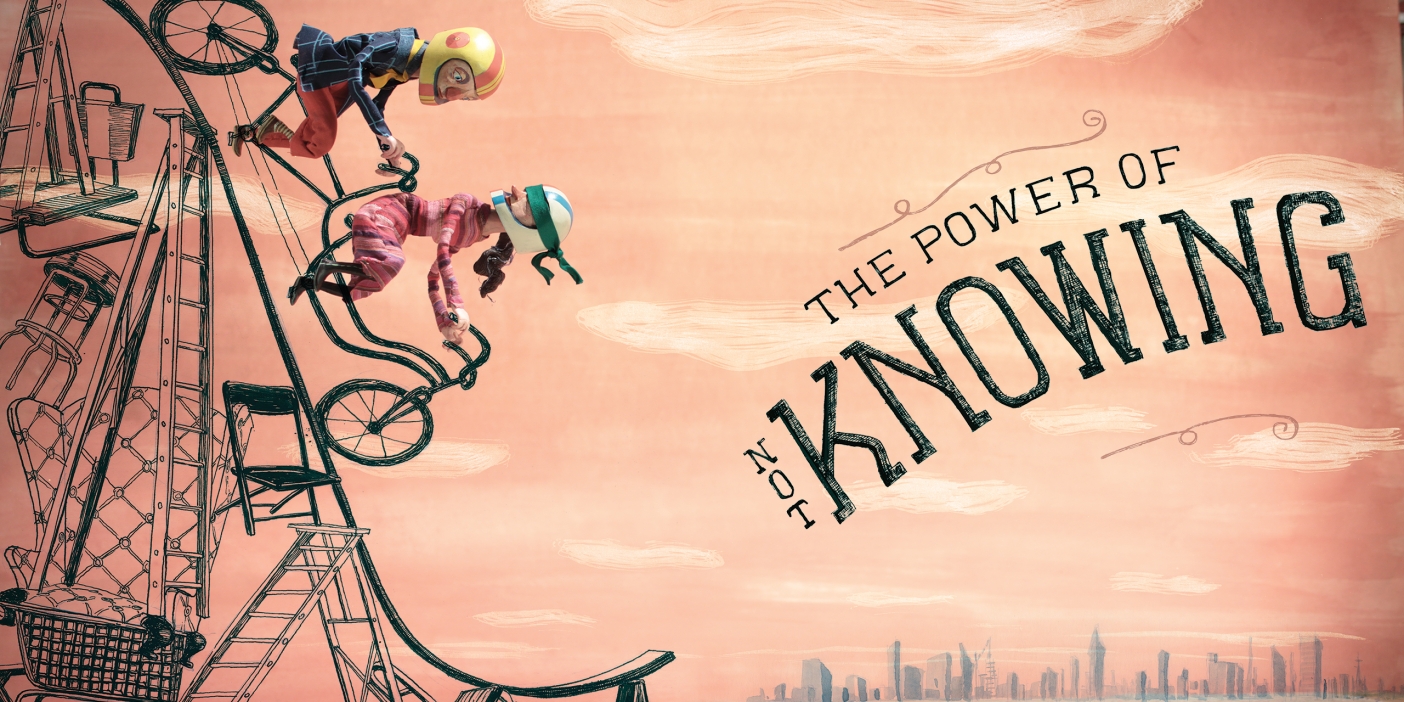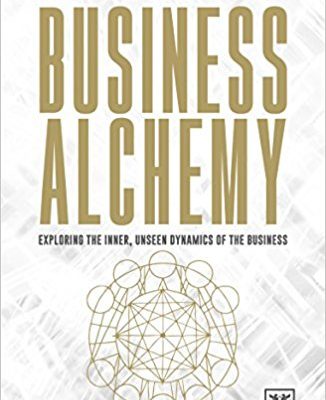In Sanskrit, one of the oldest languages on the planet, there are two principles. Ra and Ma. Ra is the masculine principle and Ma is the feminine principle. Rationality is derived from Ra, while magic is born from Ma. Our business culture, as well as the wider culture, is significantly out of balance with too much Ra and not enough Ma – we need more magic. Within Ancient Greek Culture, often described as the origin of Western Civilisation, there are two types of knowing. The first, episteme, is the most established form of knowledge, i.e. knowing facts and information about the world. It is where we get the branch of philosophy known as Epistemology. The second, nous, is more akin to an intuitive knowing and it is where we get the word nous from, which means common sense. Business Alchemy is more attuned to the latter.
In the Road To Larissa, Plato expands this distinction in knowing through an enduring example. He sets out a position whereby an individual could study a map of the road to Larissa (a city in ancient Greece) over and over again, to become familiar with every nook, cranny and turn in the road. In this sense it could be said that he completely knows the road to Larissa. This is contrasted with an individual who has physically walked every step of the road to Larissa. In the latter, there is an intimate experience of the journey to which the first “knower” can never attain. A modern example of Plato’s distinction is that if someone turned up from another planet and wanted to know about love, you could give them the ten best books ever written about love. They could read each book three times over and the question would still remain: “do they know anything about love.” Until one has had the experience of falling in love, with all its excitement, nuance and pain, it can never really be claimed that you know about love.
The business world is dominated by rationality, theory, strategy and light on intuition. However, every successful businessman or woman, in my experience, is highly intuitive without necessarily recognising this particular strength. Successful people tend to listen to their gut instinct and their intuition.
All change, all transformation and all magic arise from not knowing. We tend to live our lives from a place of knowing. For example, if we attend a talk or seminar on how to be a successful entrepreneur, we sit there thinking “he’s got that right,” “he hasn’t fully understand that,” or “he’s wrong about that.” We are evaluating the talk against what we think we already know. If we review our daily lives, most of our time is spent evaluating experience against what we think we already know. This position, by definition, excludes the possibility for new knowledge. It is restrictive and narrow rather than expansive and creative. One of the reasons for this approach as we saw in an earlier chapter is that the brain is essentially a pattern recognition programme always seeking the familiar.
Interestingly, even in the most rational, logical, analytical community in the world – the scientific community – many of the most important breakthroughs and discoveries come when the team of scientists are exhausted and have hit dead end after dead end. They reach that point of giving up and sitting back in the not knowing and a moment of inspiration arises. This is the Archimedes experience. The Archimedes moment occurred because he suddenly realised that an observation, apparently quite unrelated to what he had been intending to solve, actually provided the answer – a moment of “nous” or intuition. Isaac Newton’s moment of inspiration when he saw the apple falling off a tree is similar. Some might argue that Einstein hit on the theory of relativity by sitting in a train and watching one on the adjacent platforms moving in the opposite direction; again a moment of intuition. Certainly, “To grapple with a problem that has eluded all who have come before, to explain a part of the world in a novel way with clarity and logic, requires not merely a great deal of thought and experimentation, but also a flash of insight, a moment of creativity. It is in that sense that the search for inspiration is common to scientists and artists.’ [CAP: Quest: The Essence of Humanity (Wiley, Chichester, 2013) p 279].
Within Business Alchemy, whether I am working with an individual or a group of executives, I am constantly putting myself into a place of not knowing. This has taken several decades of practise and development but I have discovered time and again, that in this place of not knowing, inspiration and completely new ways of knowing arise. I have also discovered that this is entirely reliable. Steven de Souza and Diana Renner have written a book on the topic of Not Knowing which became the bestselling management Book of The Year. The subtitle of the book is “the art of turning uncertainty into opportunity.”
De Souza and Renner argue that “by developing a unique relationship with Not Knowing, we discover a new way of living, working and succeeding in our modern world.” As a white Caucasian male, all of my life I have been exposed to the pressure to know. As a young boy, I remember well inventing answers rather than admitting “I don’t know.” I discovered later that by throwing in a few key expressions such as “research indicates” or “eighty three per cent of people agree….” that it is possible to sound authoritative and knowledgeable rather than the admission of not knowing which is unreasonably humiliating. I can still find myself proceeding down this path on automatic pilot despite several decades of fighting against it. The pressure to know in a business environment is incredibly strong. We need to cultivate a culture where the expression “I don’t know” or “I have absolutely no idea” is both acceptable and engenders curiosity. Over the past decade, I have met a large number of highly intelligent and accomplished men and women who are at the top of their game. I am always surprised by how often I hear them saying these expressions or similar with ease.
It takes a certain level of confidence in one’s self and one’s knowledge to be able to articulate not knowing. Whereas, businessmen and women who always think that they know stems from a particularly unhelpful arrogance which is a compensation for insecurity.
Another aspect of knowing and not knowing which is critical to understand is the distinction between control and trust. We are all aware of Sir Francis Bacon’s famous phrase “knowledge is power” but the compulsion to know is usually based around the desire to control. We can look at this historically, with obvious examples found in the church and religion. We can also look at this through our individual lives where anxiety arises at the thought of not being in control. The opposite to control is a simple trust or faith in what will happen. The truth is that none of us know what will happen in the future. Yet we spend huge amounts of energy trying to predict and control the future.
Recently, when I was coaching a CEO of a large property company, he was initially nervous and resistant to this idea. Although sceptical, he agreed to experiment with this concept. The day after our session, he had an extremely important pitch to a larger competitor. In the middle of this meeting, he found himself spontaneously admitting that he had no idea in relation a critical issue. He later told me that he felt incredibly empowered in the meeting and that he was subsequently amazed by the reaction of his audience. This led to a collaboration which significantly increased the size of his revenue over night. An important element of the power in the practice of admitting not knowing is its relationship to authenticity and truth. Individuals, whether potential customers or colleagues, respond extremely well to authenticity. They are attracted by and drawn to the essence of truth. Equally, we are all becoming increasingly repelled by the levels of inauthenticity in our business communities, our politics and our wider cultures.
In our business day, we need to create space and stillness where we can allow a sense of not knowing. In this space of not knowing, a new kind of knowing can emerge. Once we are prepared to step into the arena of not knowing, it is full of previously unrealised potential. In Ancient Greek philosophy, Aristotle was the first to write about the distinction between potentiality and actuality. He concluded that potentiality is far more potent than actuality because once something has been actualised; it instantaneously becomes limited, as all other possibilities fall away. Whilst it remains potential, there is a wide variety of possibility. Similarly, in Eastern tradition, Buddhist philosophers maintain that nothing is more fundamental than something. They point out that everything arises from nothing. In the state of latency (which is unmanifest) there is a huge creative potency of what is possible. In exactly the same way, a state of not knowing is infinitely more powerful than a state of knowing.
Businessmen and women regularly fear that not knowing will lead to apathy, inactivity and underperformance. They are driven by increasing activity and busyness. The power of not knowing is that it always leads to a new way of knowing. It is never the case that we get stuck in an abyss of not knowing. What we are seeking to address here is the great imbalance between knowing and not knowing. We are not trying to eliminate or reject knowing but to introduce and encourage a proportionate of not knowing alongside the knowing. This will achieve an increasingly balanced organisation that is more expansive and successful.
This post is an excerpt from Andrew Wallas’s forthcoming book Business Alchemy, which is out on 8th June 2017. You can pre-order/buy this book on Amazon here.


